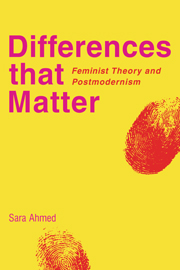5 - Authorship
Published online by Cambridge University Press: 22 September 2009
Summary
If postmodernism announces itself as a crisis of the subject, a crisis that returns to postmodernism as a crisis in its subject, then postmodernism signals a shift in thinking concerning the nature of authorship. Indeed, the ‘death of the subject’ is haunted by another death announced so famously by Roland Barthes in his polemical essay, ‘The Death of the Author’. There exists a crucial connection between the critique of the foundational subject, the subject that stands above or outside the contingent world of matter, and the critique of a model of the author as the originator of creative works. Hal Foster, for example, discusses how postmodernism ‘assumes “the death of man” not only as original creator of unique artefacts but as the centred subject of representation and history’ (Foster 1984: 67). Here, the critique of Cartesianism is directly associated with a problematisation of the notion of the author as an original creator. As Patricia Waugh suggests, postmodernism engages in a repudiation of the discourses of modernity by ‘proclaiming “the death of the author” and the end of humanism’ (Waugh 1992: 129). Barthes's pronouncement of the ‘death of the author’ has been read in this way as signalling a postmodern suspicion of the human subject as a founding principle of modernity. So while we may question any assumption that there is an author of postmodernism, we can nevertheless recognise that postmodernism may become (ironically) authorised through the narrativisation of the author's death.
- Type
- Chapter
- Information
- Differences that MatterFeminist Theory and Postmodernism, pp. 119 - 141Publisher: Cambridge University PressPrint publication year: 1998



